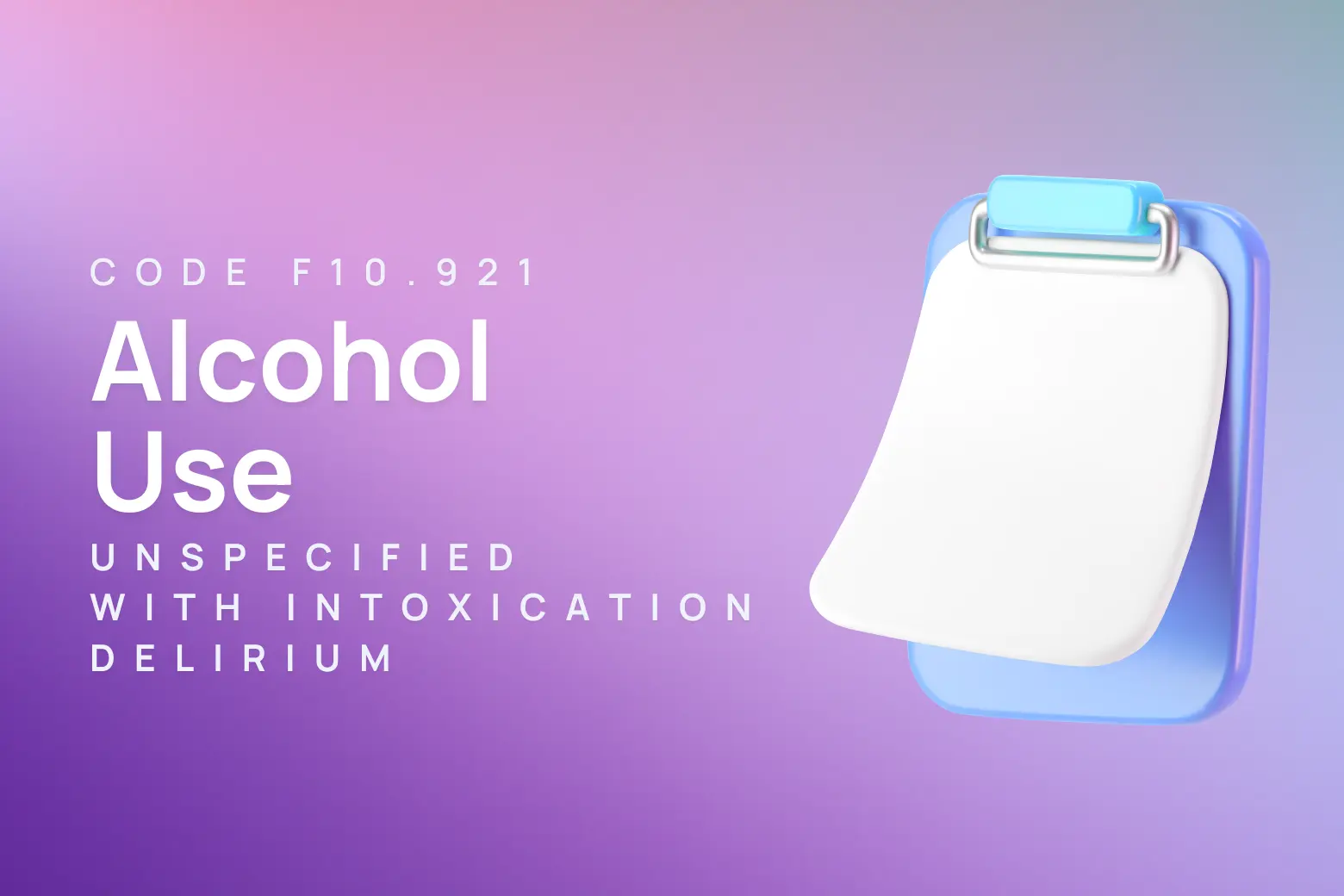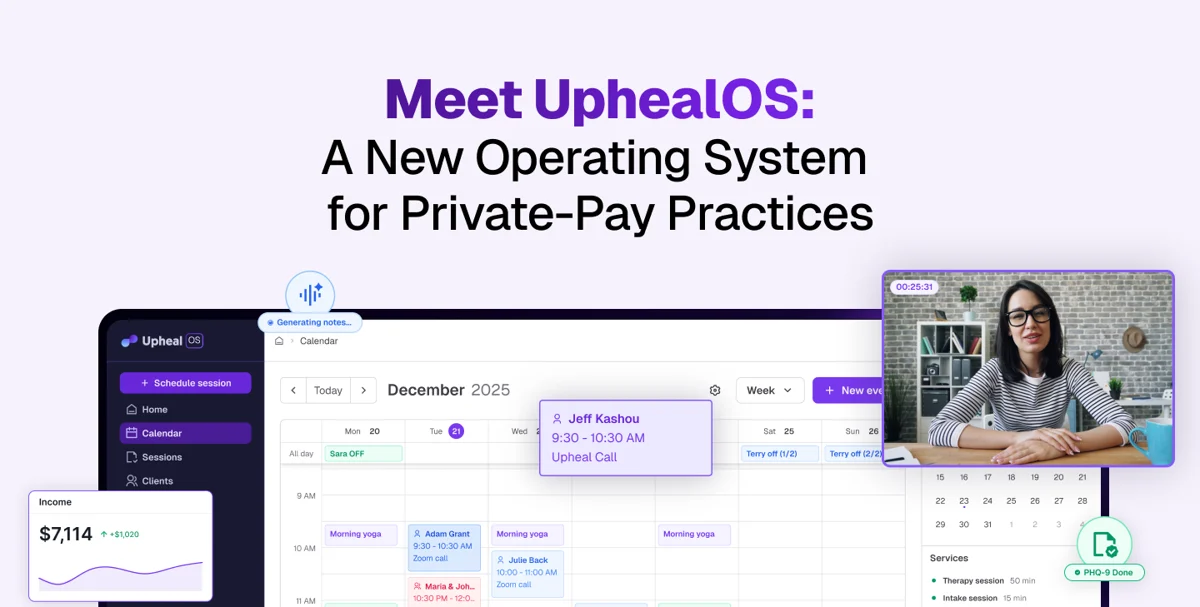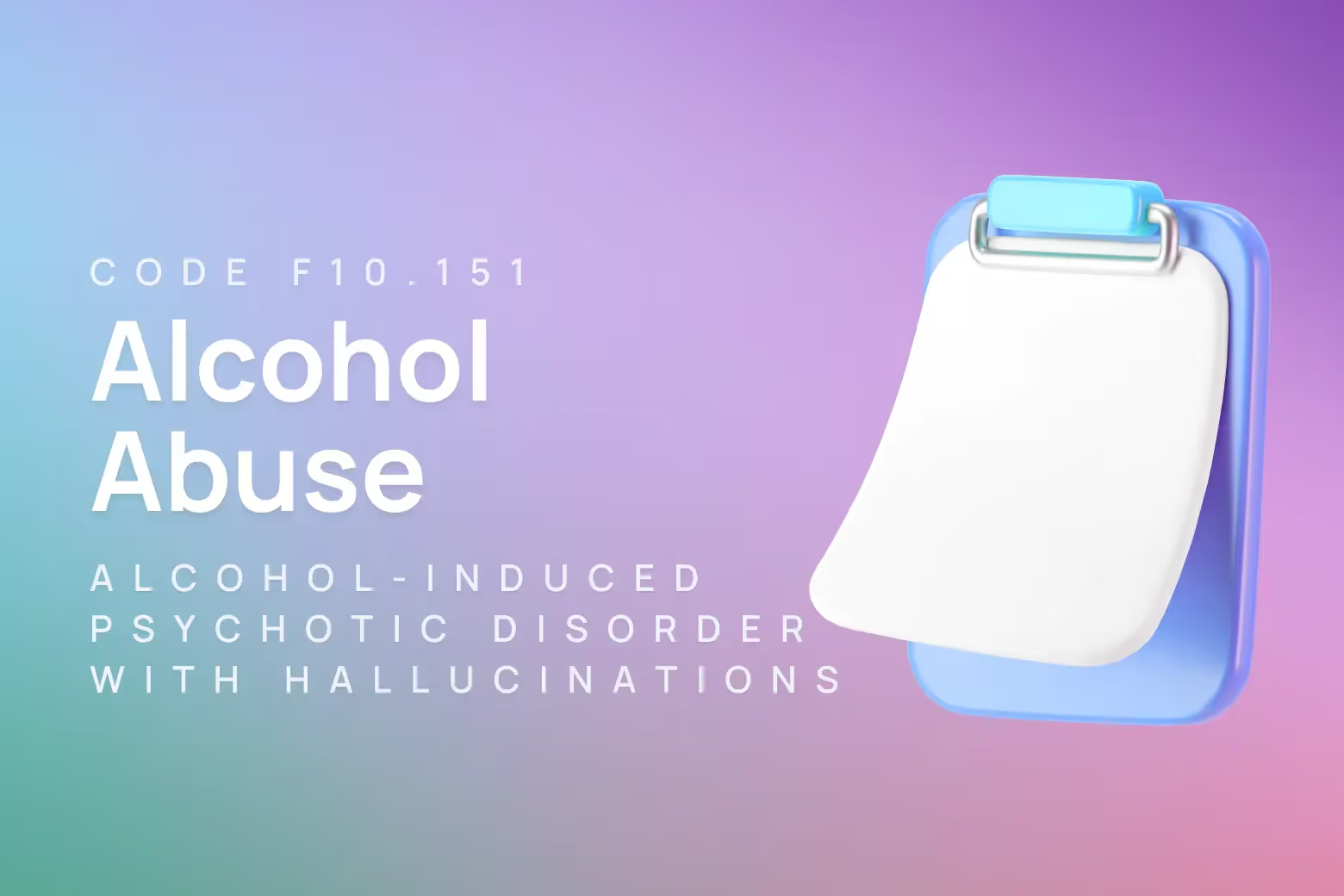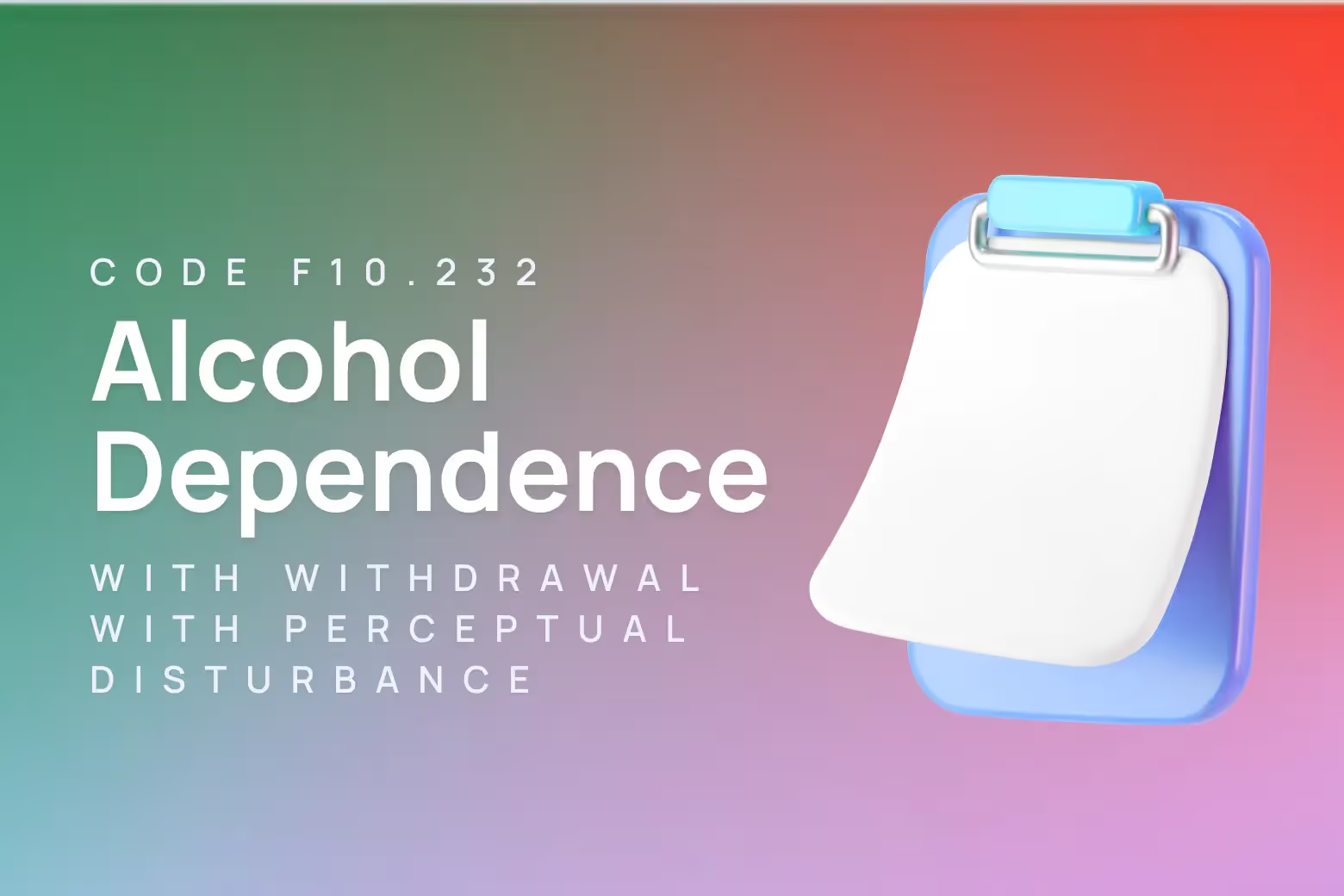ICD-10 code for alcohol use, unspecified with intoxication, delirium

F10.921 is the ICD-10 code for alcohol use, unspecified with intoxication, delirium.
This code represents a critical condition where alcohol intoxication has progressed to include delirium symptoms.
Accurate diagnosis of this condition is essential for providing appropriate emergency medical care and preventing potentially life-threatening complications.
Key features:
- Represents alcohol intoxication complicated by delirium symptoms
- Indicates unspecified alcohol use disorder severity during intoxication episode
- Requires immediate medical assessment and close monitoring
- Associated with significant morbidity risk if left untreated

Diagnostic criteria for alcohol use with intoxication, delirium (F10.921)
F10.921 combines the clinical features of alcohol intoxication with the serious complication of delirium. The diagnosis requires meeting criteria for both alcohol intoxication and delirium occurring simultaneously.
Alcohol intoxication presents with behavioral and psychological changes including impaired judgment, mood alterations, and disinhibition.
Physical signs typically include slurred speech, coordination problems, unsteady walking, and potential nausea or vomiting.
The delirium component involves specific cognitive disturbances that distinguish this code from simple intoxication:
- Disturbance in attention with reduced ability to direct, focus, sustain, and shift attention
- Reduced awareness and orientation to the environment
- Rapid onset developing over hours to days with fluctuating severity throughout the day
- Additional cognitive disturbances including memory deficits, disorientation, language problems, or perceptual disturbances
- Clear evidence that symptoms result directly from alcohol intoxication rather than pre-existing conditions
The combination creates a medical emergency requiring immediate intervention and close monitoring.
When to use F10.921 diagnosis code
Proper differential diagnosis ensures accurate coding and appropriate treatment planning. F10.921 should be distinguished from related alcohol-induced conditions that may present similarly.
F10.921 vs F10.920 (Alcohol use, unspecified with intoxication, uncomplicated)
F10.920 represents straightforward alcohol intoxication without cognitive complications. Patients present with typical intoxication symptoms but maintain clear consciousness and normal cognitive function.
There are no attention deficits, disorientation, or fluctuating awareness levels that characterize delirium.
F10.921 vs F10.929 (Alcohol use, unspecified with intoxication, unspecified)
F10.929 serves as a broader category when intoxication severity cannot be determined or when documentation lacks sufficient detail.
F10.921 requires specific delirium symptoms to be present and documented, making it more clinically precise.
F10.921 vs F10.92 (Alcohol use, unspecified with intoxication)
F10.92 represents the general category without specific complications.
F10.921 requires the additional presence of delirium symptoms, representing a more severe clinical presentation requiring specialized management.
Related ICD-10 codes
- F10.92 - Alcohol use, unspecified with intoxication
- F10.920 - Alcohol use, unspecified with intoxication, uncomplicated
- F10.929 - Alcohol use, unspecified with intoxication, unspecified
- F10.121 - Alcohol use disorder, mild, with intoxication delirium
- F10.221 - Alcohol use disorder, moderate or severe, with intoxication delirium
- F10.231 - Alcohol withdrawal delirium
Interventions and CPT codes for alcohol use with intoxication, delirium
Treatment for F10.921 requires immediate medical stabilization followed by comprehensive behavioral health interventions once the acute phase resolves.
Emergency medical management
Initial treatment focuses on medical stabilization and delirium management. This includes close monitoring of vital signs, correction of dehydration and electrolyte imbalances, and environmental modifications to reduce sensory stimulation.
Benzodiazepines represent first-line medications for managing agitation while antipsychotic medications may be used adjunctively for severe cases.
CPT 90839 - Psychotherapy for crisis situations when managing acute risks related to intoxication or withdrawal complications.
Comprehensive diagnostic evaluation
Following medical stabilization, thorough assessment establishes underlying alcohol use patterns and comorbid conditions.
CPT 90791 - Psychiatric diagnostic evaluation for initial intake assessment, including history, mental status examination, diagnosis establishment, and treatment planning.
Individual psychotherapy interventions
Evidence-based therapeutic approaches target alcohol use reduction and relapse prevention once acute symptoms resolve.
CPT 90832/90834/90837 - Individual psychotherapy sessions (30/45/60 minutes) using motivational interviewing, cognitive-behavioral therapy for substance use disorders, or relapse prevention techniques. Session length determines specific code selection.
Family and group interventions
CPT 90846/90847 - Family psychotherapy without or with patient present, addressing family dynamics, codependency patterns, and relapse prevention planning.
CPT 90853 - Group psychotherapy for substance use disorder treatment, focusing on peer support, skill development, and relapse prevention strategies.
Screening and brief intervention services
CPT 99408/99409 - Structured screening and brief intervention services (15-30 minutes or >30 minutes) for commercial payers, incorporating standardized screening tools and brief counseling interventions.
CPT G0396/G0397 - Medicare HCPCS codes for structured assessment and brief intervention (15-30 minutes or >30 minutes) in non-preventive settings.
How Upheal improves F10.921 ICD-10 documentation
Clinical documentation for alcohol intoxication with delirium requires precise attention to multiple diagnostic criteria and treatment interventions. Upheal's clinical documentation platform helps behavioral health providers maintain comprehensive records while focusing on critical client care.
Suggesting appropriate ICD-10 codes based on session content
Upheal analyzes session conversations to identify key clinical indicators that support F10.921 diagnosis.
The platform recognizes mentions of intoxication symptoms, cognitive disturbances, attention deficits, and disorientation patterns.
This helps clinicians capture the complex symptom presentation required for accurate coding while ensuring all diagnostic criteria are properly documented.
Maintaining HIPAA-compliant records with proper diagnostic coding
The platform automatically organizes clinical observations into structured documentation that meets compliance requirements.
Upheal maintains secure records that include detailed symptom tracking, treatment interventions, and progress monitoring specific to alcohol-related delirium cases.
This ensures proper billing support while protecting client confidentiality.
Reducing administrative burden so you can focus on client care
Managing cases involving F10.921 requires intensive clinical attention during acute phases and careful monitoring throughout treatment.
Upheal automates routine documentation tasks, allowing clinicians to concentrate on critical medical assessment, crisis intervention, and therapeutic relationship building that these complex cases demand.
Supporting clients with alcohol use and intoxication delirium
Clients presenting with F10.921 require immediate medical stabilization followed by comprehensive substance use treatment.
The delirium component indicates severe intoxication that poses significant health risks requiring emergency intervention.
Treatment planning begins with thorough medical assessment and close monitoring until cognitive symptoms resolve.
Environmental modifications including quiet surroundings, minimal sensory stimulation, and consistent orientation cues help manage delirium symptoms.
Family involvement becomes crucial for understanding drinking patterns and developing safety plans.
Long-term recovery requires addressing underlying alcohol use patterns through evidence-based interventions.
Motivational interviewing helps clients explore ambivalence about changing drinking behaviors while cognitive-behavioral approaches target triggers and coping strategies.
Relapse prevention planning includes identifying early warning signs and developing crisis response protocols.
Upheal's clinical documentation platform supports providers throughout this complex treatment process by maintaining comprehensive records, suggesting appropriate interventions, and tracking progress indicators.
The platform helps ensure thorough documentation while allowing clinicians to focus on delivering critical care during acute phases and building therapeutic relationships that support long-term recovery.
Try Upheal for free to experience how technology can improve clinical documentation while keeping client care as your primary focus.













